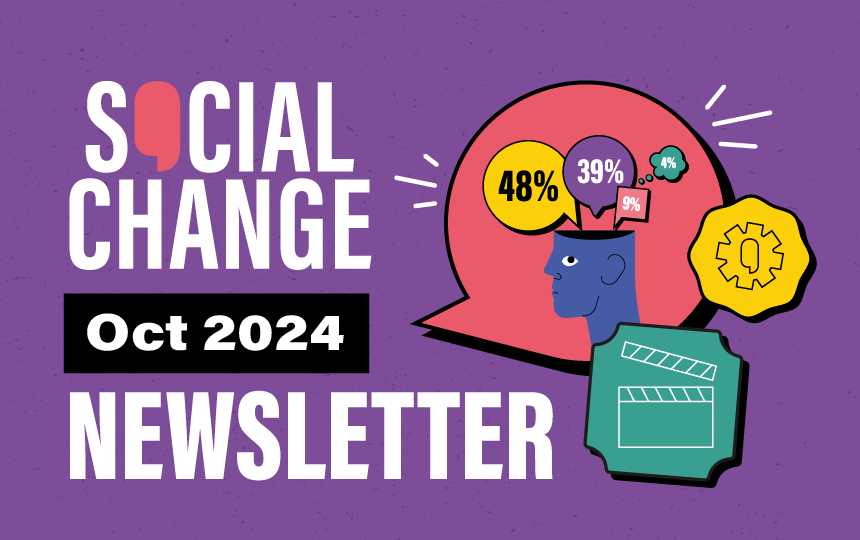
October 2024 Newsletter
Your regular dose of BS (Behavioural Science) from the Changemakers at Social Change.
More +Your regular dose of BS (Behavioural Science) from the Changemakers at Social Change.
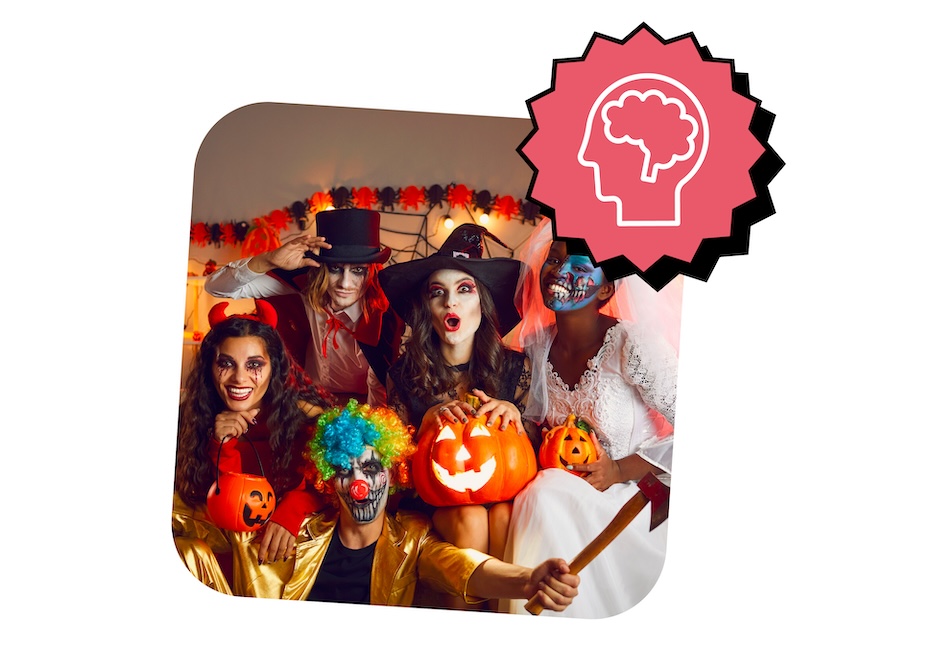
Did you know that 11 million Brits dressed up for Halloween this year*? Whether it was through costumes, ghoulish makeup, or spooky decorations, many embraced the spirit of October 31st.
Did you join in the fun?
This trend reflects the Costume Psychology and Identity Play theory as dressing up allows individuals to explore different aspects of their personalities, even if just for a night. Research shows that wearing costumes can reduce self-consciousness and promote bolder behaviour through deindividuation, where anonymity encourages more outgoing actions.
*Source: Retail Technology Innovation Hub

A one-minute introduction to a behavioural theory
Reactance Theory
Have you ever planned to do something simple, like wash the dishes, but the moment someone asked you to do it, you suddenly lost all desire to follow through?
This reaction is an example of Reactance Theory, which explains why we sometimes do the opposite of what we’re asked, especially if we feel our freedom is restricted. When we sense that someone is pushing us too hard, we become strongly motivated to reclaim our autonomy.
For example, when children eat as many sweets as they can simply because their parents told them not to, they experience a sense of restricted freedom. This restriction triggers a strong desire to assert their independence.
Likewise, as we’ve seen, adults are also not exempt from reacting to perceived threats to their freedom. During the COVID-19 pandemic, for instance, many showed signs of reactance in response to public health measures, such as compulsory mask restrictions and vaccination guidelines. These restrictions, though intended to control the spread of the virus, led some individuals to resist or push back as a way of reasserting their autonomy.
Are you interested in learning more about the Reactance Theory and how it affects your marketing? Check out our latest guide!
Resource: The Power of Anchoring
Anchoring is a psychological bias where people rely heavily on the first piece of information they receive, affecting how they process subsequent decisions.
This guide uncovers the power of anchoring in marketing, business, and everyday life, helping you recognise when it's influencing your choices. With practical examples and tips, you can learn how to spot and counteract anchoring to make more informed decisions.
Guide: Banking on the UKs Glass Deposit Scheme
The UK is considering a Deposit Return Scheme (DRS) for recycling, charging a 10-20p deposit on drink containers, refundable upon return. While PET plastic and metal containers are included, only Wales plans to add glass, sparking a debate.
Our guide explores the pros and cons of including glass, examining environmental benefits, logistical challenges, and behavioural science insights.
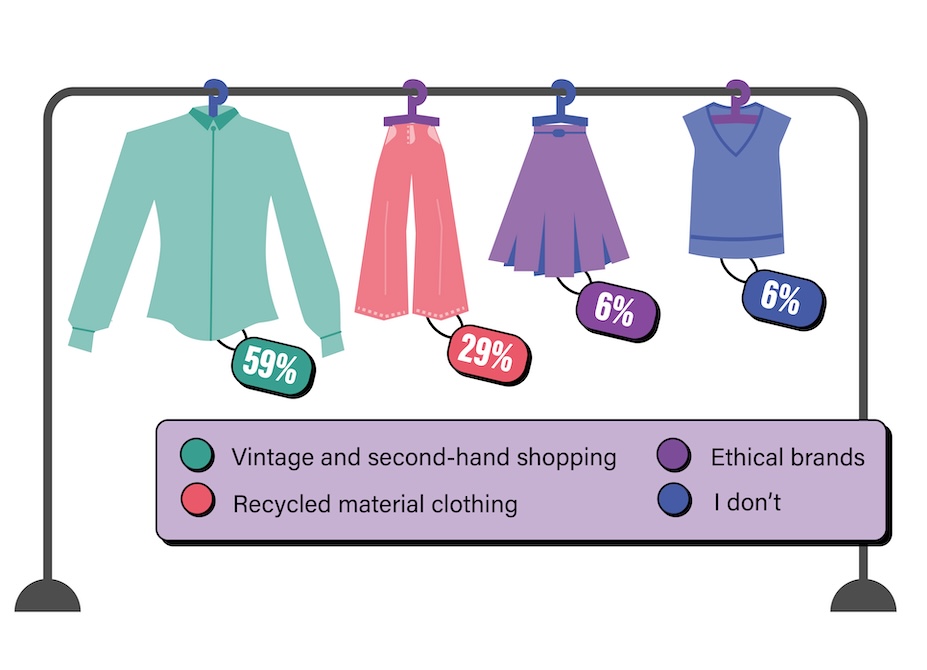
How do you embrace sustainability in your wardrobe?
This poll reflects behavioural drivers behind sustainable fashion choices. Second-hand shopping, the most popular option (59%), appeals to social norms and allows people to express a unique, eco-conscious identity. Ethical brands (6%) attract those whose values align with supporting fair practices, even at a higher cost. In contrast, recycled material clothing is also less common then second hand shopping, possibly due to limited availability, while those not embracing sustainability at all may face barriers like cost, access or ease. These insights suggest that increasing accessibility and aligning sustainable options with personal values could encourage wider adoption of eco-friendly fashion habits.
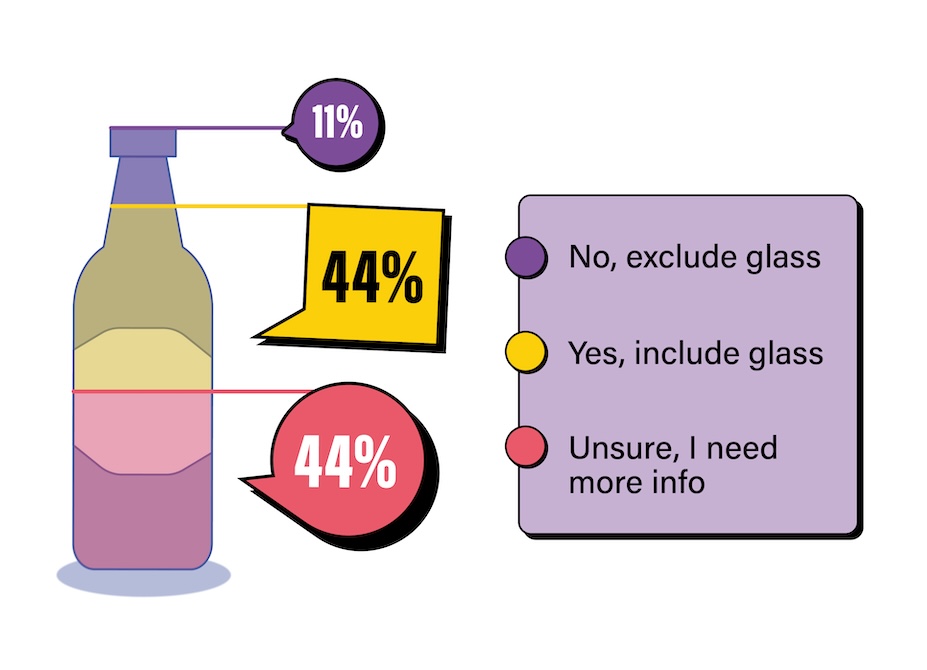
What’s your opinion on including glass in the Deposit Return Scheme?
If you want to learn more about the Deposit Return Scheme and its impact, explore our guide for a detailed look at the benefits, challenges, and the role glass could play in boosting recycling rates. Find out more to make an informed decision!
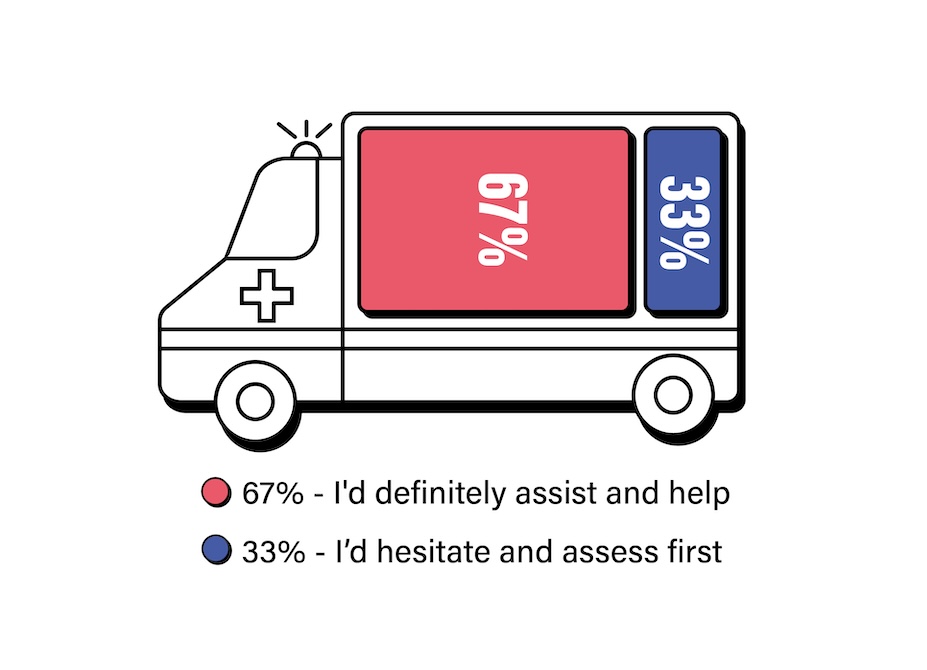
If you're walking down the street and witness a medical emergency, would you step in to help or look away and hope someone else does?
This poll highlights a significant willingness to assist in a medical emergency. However, many may hesitate or assess the situation first, a percentage that can be understood through several behavioural science factors.
Diffusion of responsibility, or the bystander effect, plays a crucial role here; when people are in a group, they often feel less personally accountable for taking action, assuming that someone else will step in. This can reduce the urgency to help. Additionally, social influence and pluralistic ignorance can impact decisions; if others are not acting, individuals might interpret the situation as non-urgent, despite feeling internally that intervention is necessary.
Furthermore, the fear of making a mistake can prevent action, as some individuals may worry about misinterpreting the situation and facing embarrassment or negative judgment for intervening when it's not required. Lastly, a perceived inability to help can also contribute to hesitation; if people feel they lack the skills or resources to provide meaningful assistance, they might assume that others are better equipped to handle the emergency, leading to inaction.
Understanding these factors can help us create a culture of responsiveness and encourage individuals to overcome hesitation and take action when needed.
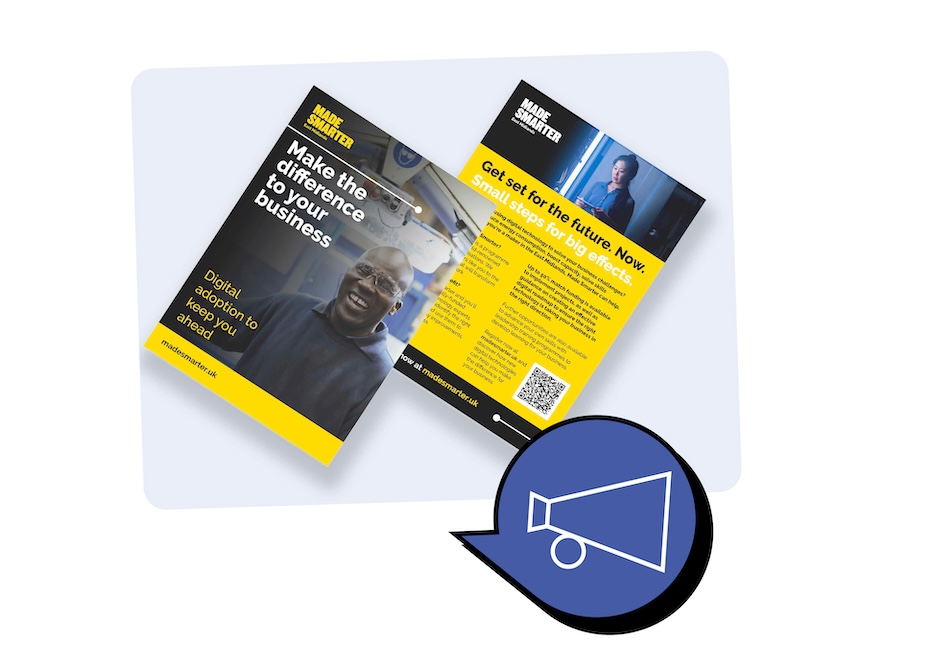
Promoting Digital Transformation in Manufacturing
Our team was commissioned to promote this initiative, engaging manufacturers across the East Midlands region to learn about and apply for fully funded support and grant funding available to help them adopt digital solutions to boost their business.
This includes project management, PR and promotion, creative design and digital marketing.
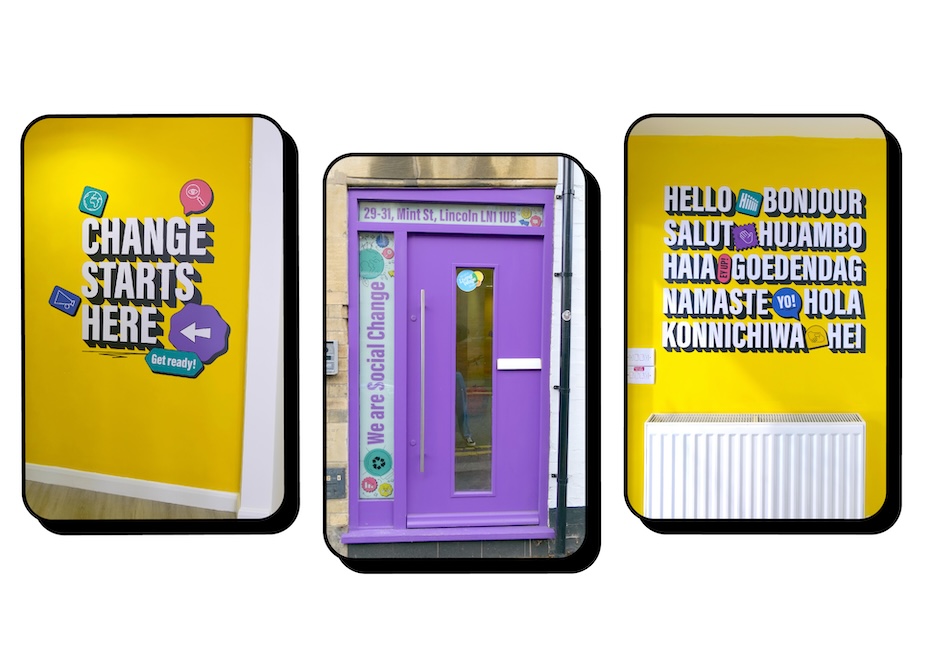
Discover our new office graphics!
We've recently added some vibrant new graphics to the office to inspire creativity and spark change! If you want to pop by for a cuppa, let us know - we’d be happy to have you.
The Behavioural Science Team travelled to London for face-to-face research
Last week, Daisy and Diana from our Behavioural Insights team travelled to London to conduct face-to-face interviews with residents and businesses in order to gain insights into smoking habits. These insights will help us create effective campaigns for our clients, driving change and inspiring action.
If you're interested in learning more about our research methods or how we can work together, contact us today!
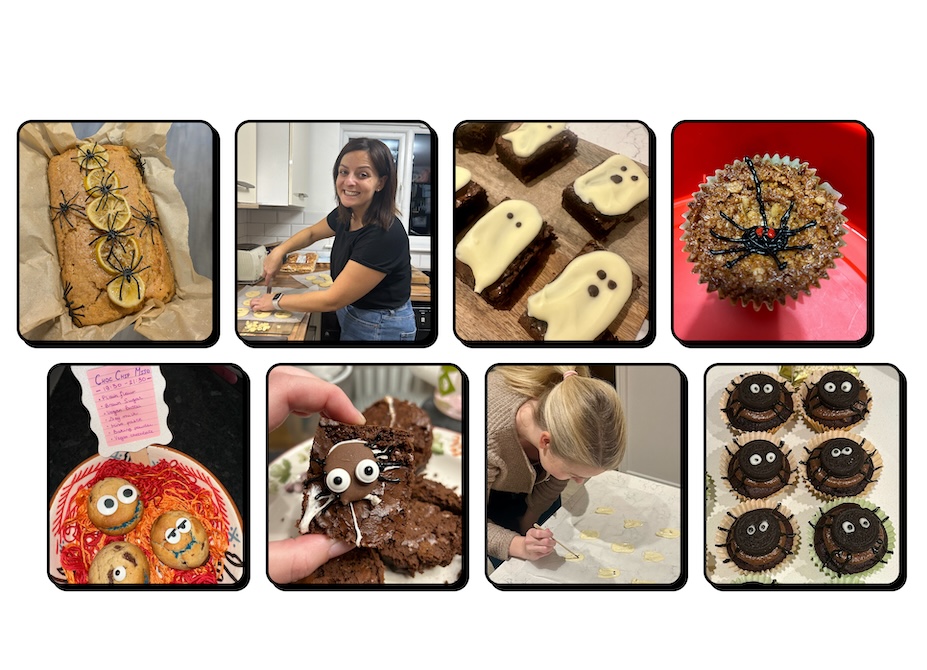
Halloween Bake-Off
The Social Change team got into the Halloween spirit with a festive bake-off! From spooky cakes and ghoulish brownies to hauntingly sweet treats, everyone brought their best Halloween-themed dishes to the table. Head over to our Instagram to see the delicious results.
Check out our Instagram to see what the team has been working on and get a behind-the-scenes look!

Your regular dose of BS (Behavioural Science) from the Changemakers at Social Change.
More +Enter your email address below to access the Academy and our Webinars